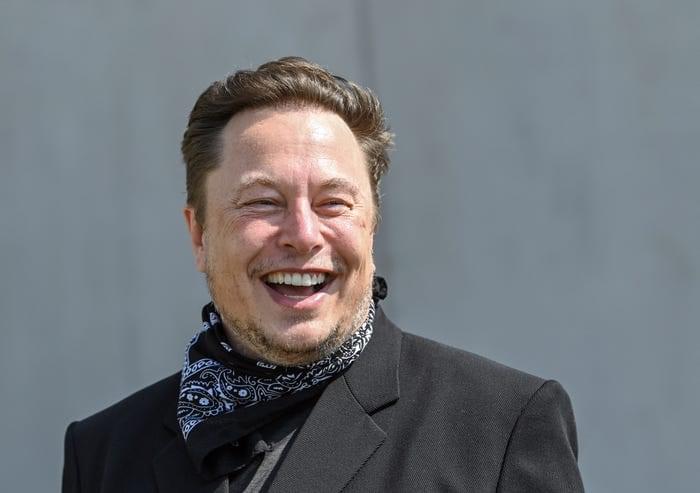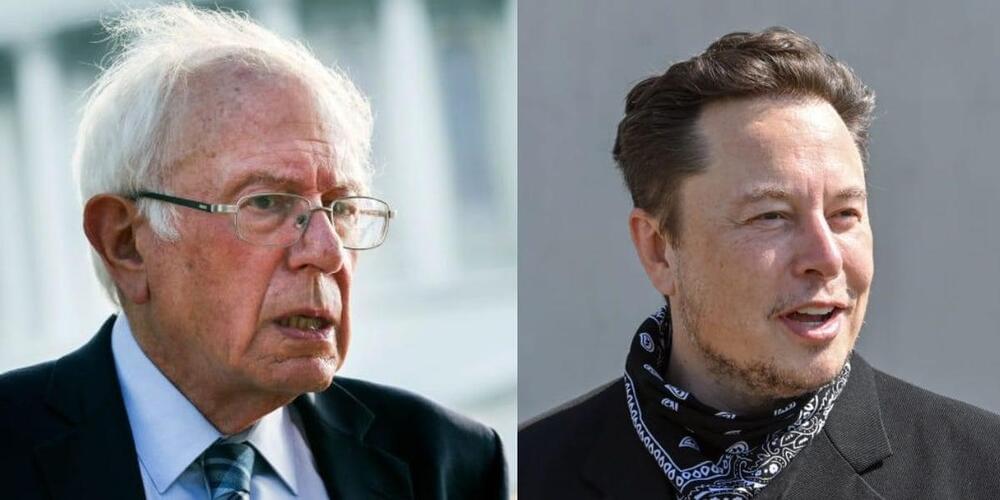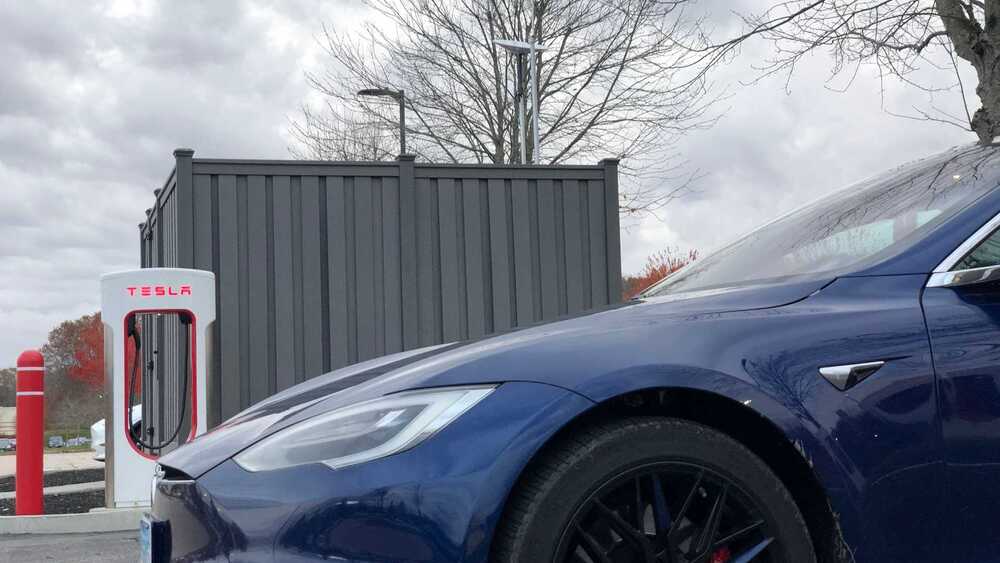SpaceX launches Crew-3, Tesla crashes, Elon Musk considers selling… again?
SpaceX launches Crew-3 and Starlink, Tesla’s Full Self-Driving potentially causes a crash, angered by Bernie Sanders, Elon Musk considers selling stock… again?
SpaceX launches Crew-3, Tesla crashes, Elon Musk considers selling… again?
SpaceX launches Crew-3 and Starlink, Tesla’s Full Self-Driving potentially causes a crash, angered by Bernie Sanders, Elon Musk considers selling stock… again?
Rumors that Tesla is indeed making a smartphone were bolstered after the world-famous design studio ADR released concept images (in a video). This made people wonder: Is Tesla going to go after the iPhone — or simply create an entirely new market segment, such as a true-to-form satellite phone that works where traditional WiFi or 5G services are absent, and able to mine cryptocurrencies anywhere, including on the planet Mars?While speculations abound, there are numerous unanswered questions, such as: how much would it retail for? Does it have a sim card? What’s the monthly charge for using Starlink? Can I buy one, without first buying a Tesla EV? Its release date is a closely-guarded secret. A Starlink antenna is being taken out of the box. Tech publications have leaked images of the new device supposedly out of the EV maker, including some details of what it can do.
Ad Astra School is the experimental school that Elon Musk started in one of SpaceX’s factories to give an education to his own children and selected children of SpaceX employees. The future of work will require a set of skills that are not taught in schools today. The future of work will involve robots and Artificial Intelligence collaborating with humans. The Astra Nova School’s pillars include caring about community, focusing on student experiences, and sharing the work they do with the world.
Here students learn about simulations, case studies, fabrication and design projects, labs, and corporate collaboration. In general, school systems are rigid. They are more system-centric than student-centric. Astra Nova is changing that by creating a philosophy of student centricity, a value for individual abilities, praising curiosity, and encouraging problem-solving and critical thinking.
💰 Get Free Bitcoin on CoinBase: https://rb.gy/dhms0s.
💰 Earn Free Crypto: https://rb.gy/jf0q9n.
💰Get Free Stocks: https://rb.gy/2fy0a3My Favorite Editing Software:
▶ Adobe Premier Pro: https://rb.gy/qzfnsgMy Favorite Royalty Free Music Site:
▶ Epidemic Sounds: https://rb.gy/wssm4kFor more by Smart Sense subscribe now: https://bit.ly/36lGHuU
For the best videos be sure to subscribe and turn on the post notifications so you don’t miss any videos and once you’ve subscribed comment something nice for a shoutout.

SpaceX plans to launch a staggering number of rockets next year, helping to reach CEO Elon Musk’s goal of completing 48 launches in one year.
Artificial Superintelligence or ASI, sometimes referred to as digital superintelligence is the advent of a hypothetical agent that possesses intelligence far surpassing that of the smartest and most gifted human minds. AI is a rapidly growing field of technology with the potential to make huge improvements in human wellbeing. However, the development of machines with intelligence vastly superior to humans will pose special, perhaps even unique risks.
Most surveyed AI researchers expect machines to eventually be able to rival humans in intelligence, though there is little consensus on when or how this will happen.
One only needs to accept three basic assumptions to recognize the inevitability of superintelligent AI:
- Intelligence is a product of information processing in physical systems.
- We will continue to improve our intelligent machines.
- We do not stand on the peak of intelligence or anywhere near it.
Philosopher Nick Bostrom expressed concern about what values a superintelligence should be designed to have.
Any type of AI superintelligence could proceed rapidly to its programmed goals, with little or no distribution of power to others. It may not take its designers into account at all. The logic of its goals may not be reconcilable with human ideals. The AI’s power might lie in making humans its servants rather than vice versa. If it were to succeed in this, it would “rule without competition under a dictatorship of one”.
Elon Musk has also warned that the global race toward AI could result in a third world war.
To avoid the ‘worst mistake in history’, it is necessary to understand the nature of an AI race, as well as escape the development that could lead to unfriendly Artificial Superintelligence.
To ensure the friendly nature of artificial superintelligence, world leaders should work to ensure that this ASI is beneficial to the entire human race.
Tesla’s CEO believes he can radically change how cars are put together.

Although the colonization of Venus seems like a lost cause to many, it appears that the people at NASA are very optimistic about their plans to colonize it! Subscribe to Futurity for more space news.
#nasa #space #venus.
Here at Futurity, we scour the globe for all the latest tech releases, news and info just so you don’t have to! Covering everything from cryptocurrency to robotics, small startups to multinational corporations like Tesla and Jeff Bezos to Elon Musk and everything in between!

Reports from various parts of the U.S. indicate that Tesla has started deployment of SpaceX Starlink dishes at Supercharging stations to offer Wi-Fi access (not all sites have W-Fi).
The move was actually announced by Tesla’s COE Elon Musk in October and now at least thea first few sites were equipped with SpaceX Starlink dishes.